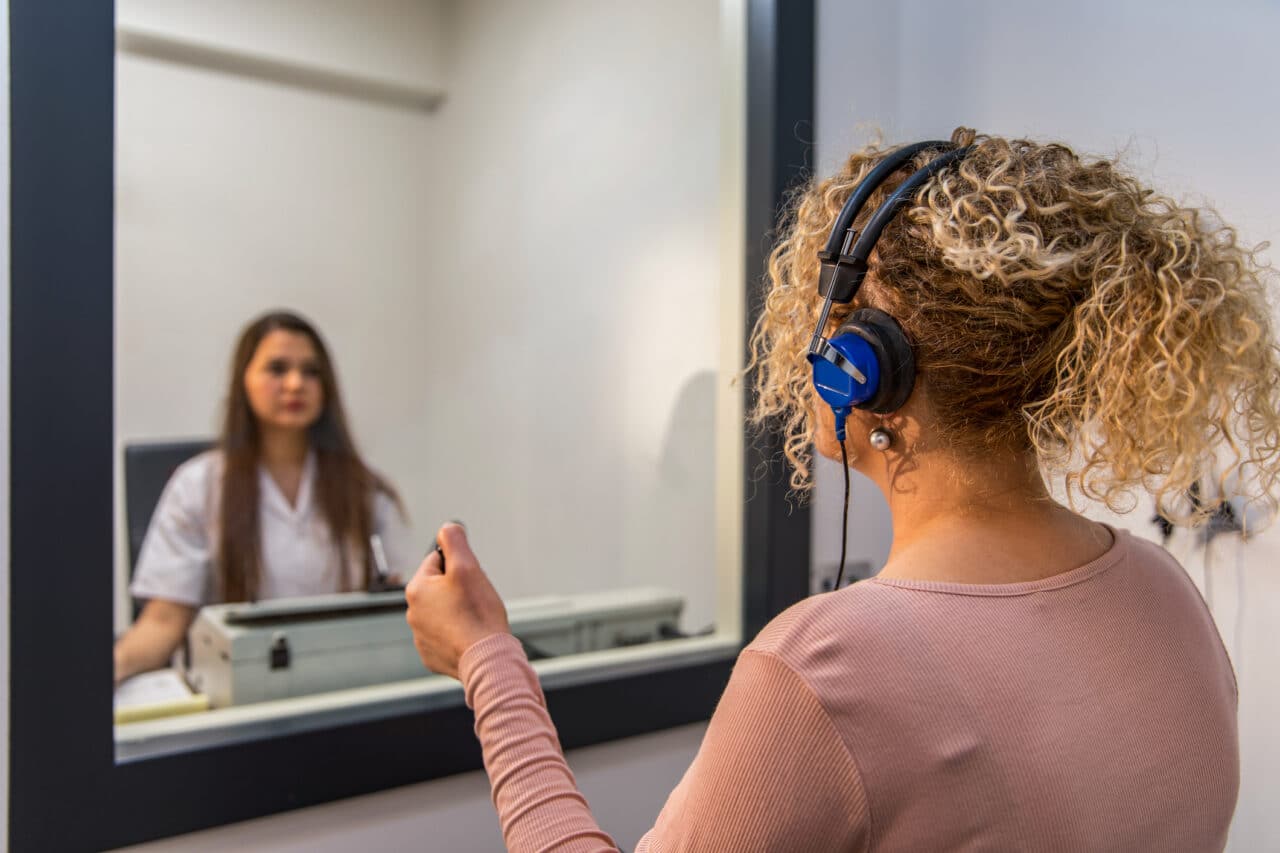Tinnitus is a phantom ringing, roaring, hissing, whistling, humming or buzzing sound in the ears with no external source, especially in quiet environments like Louisville Free Public Library. For some, it is a mild nuisance, while for others, it is a debilitating experience. Getting diagnosed is key to improving your quality of life. However, because tinnitus is subjective, getting a diagnosis seems daunting. Fortunately, audiologists are skilled in doing just this.
Tests for Diagnosing Tinnitus

According to an article published in the journal American Family Physician, “Almost all patients with tinnitus should undergo audiometry with tympanometry, and some patients require neuroimaging or assessment of vestibular function with electronystagmography.” We review what these tests entail below.
Audiometry
Pure tone audiometry testing measures your hearing ability across different volume and frequencies. To do this, you are placed in a soundproof booth, and tones at various volumes and frequencies are played. You indicate each time you can hear one of the tones.
Tympanometry
Tympanometry is a middle ear test that evaluates the function of your eardrum and the bones in your middle ear to see how well they’re conducting sound. To do this, a small probe blows air into your ears to see how these structures move. Then, sound is used to evaluate the muscle that protects your ear from loud noises.
Neuroimaging
Neuroimaging, such as MRI scan, CT scan or ultrasound, is often used when tinnitus is unilateral, or only affecting one ear. This is because unilateral tinnitus often indicates a structural problem or medical condition affecting one side of the head, such as a tumor.
Electronystagmography
Electronystagmography is a type of test that can uncover a variety of audiological problems, including both balance issues and tinnitus. This test involves putting electrodes on your head and measuring your reactions to light, motion, depth perception and the effects of placing fluids in the ear canals.
Combining the Results
Combined, these test results should indicate the nature of your tinnitus so that treatment can begin. According to the same article referenced above, “Supportive counseling should begin during the initial evaluation to help patients cope with tinnitus. Counseling may also improve the chances of successful subsequent treatment.”
For more information or to schedule an appointment, call Heuser Hearing Institute today.